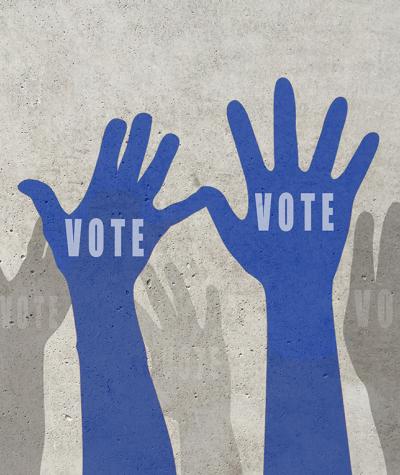Leading up to the final presidential debate, this week’s headlines in the presidential election have revolved around candidate Donald Trump’s incendiary insistence that the election is rigged against him.
“The election is absolutely being rigged by the dishonest and distorted media pushing Crooked Hillary – but also at many polling places – SAD,” Trump tweeted on Sunday. According to ABC News, in less than 48 hours over the weekend, Trump either spoke or tweeted more than 20 times about his belief that the election process is rigged.
Many people will chalk this up to ‘Trump being Trump,’ but nonetheless Trump’s statements are irresponsible and unacceptable from a major party nominee for President. In August, Trump encouraged his supporters to “go around and look and watch other polling places,” warning against cheating in areas of Philadelphia that are majority black and Latino. He has repeated these statements in recent weeks.
The truth is that voter fraud – which Trump appears to be calling on his vigilante supporters to protect against, has been proven by study after study to be exceedingly rare. For example, a comprehensive analysis in 2014 found only 31 credible reports of in-person voter impersonation fraud (the type of fraud allegedly prevented by voter ID laws) since 2000. That’s 31 instances out of over 1 billion votes cast during that time.
Despite the evidence, supporters of discriminatory voter ID laws have pushed the myth of voter fraud. Whites are 2-3 times more likely to have the types of voter IDs these laws require than blacks and Hispanics, so the laws have a disproportionate impact on minority communities that have traditionally struggled for equal voting rights.
In other words, there is no credible threat of widespread fraud or rigging and Trump’s calls for vigilante voter fraud enforcement are simply fear mongering. As CLC’s Anna Bodi, Partner Legal Fellow at the Voting Rights Institute wrote Monday, incidences of voter intimidation under the disguise of voter fraud prevention are not new, but they are a crime. Trump is singling out heavily minority communities – and the activity he is calling for could result in unlawful voter harassment at the ballot box.
Restoring full faith in our democracy is a challenge in the post- Shelby County v. Holder (2013) era, in which states have passed a slew of voting rights laws that suppress the vote, particularly harming minority voters. At the final debate, the candidates should explain what concrete actions they would take to protect voting rights and make voting easier. What will these candidates do to help restore the full protections of the Voting Rights Act and fight discriminatory voting laws? Will they work to expand early voting, implement universal automatic voter registration, same day voting, end partisan and racial gerrymandering or take other steps to ensure that all voters can access the ballot and elect representatives of their choice?
Trump’s talk of a “rigged” system hasn’t been limited to the ballot box. He has disparaged his rivals as “puppets” of their donors and declared that presidential candidates working with super PACs are “not only breaking the spirit of the law but the law itself.”
While this doesn’t make the election “rigged” or illegitimate, Trump does have a point about the current state of money in politics and how it undermines the public’s faith in our democracy.
In the post-Citizens United v. FEC (2010) era, massive amounts of money have flooded our elections and wealthy donors have outsized influence in our democracy. And the notoriously deadlocked Federal Elections Commission (FEC) refuses to enforce the laws requiring that billionaire-funded super PACs remain independent of campaigns.
But Trump has not put forward a single policy solution to address super PACs or the role of big money in our election system. And, according to recent complaints filed by CLC, both Trump and Clinton appear to be violating the campaign finance laws that exist.
Voters across the political spectrum overwhelmingly agree that our campaign finance system needs fixing. The candidates should be asked to talk about their solutions to our broken system: what will they do to fix the dysfunctional FEC or reign-in super PACs? An uninspired declaration from either candidate that they are immune to the influence of money in politics isn’t enough.
CLC urges the final debate moderator, Chris Wallace of Fox News to ask questions about these real issues, which if addressed, can restore faith in our democracy.
Two weeks ago, before the second presidential debate, we called on moderators Anderson Cooper and Martha Raddatz to ask the candidates questions about what they think should be done about the outsize role of money in politics and about their campaign’s illegal coordination. Unfortunately, we heard more personal attacks between Clinton and Trump, and far less about solutions to the foundational issues of our democracy.
Voters are still waiting for answers.
